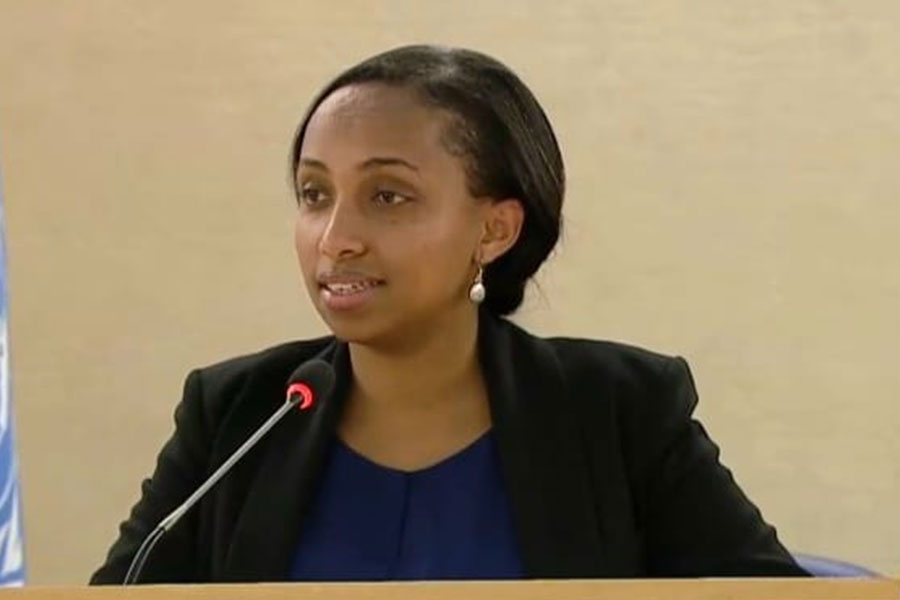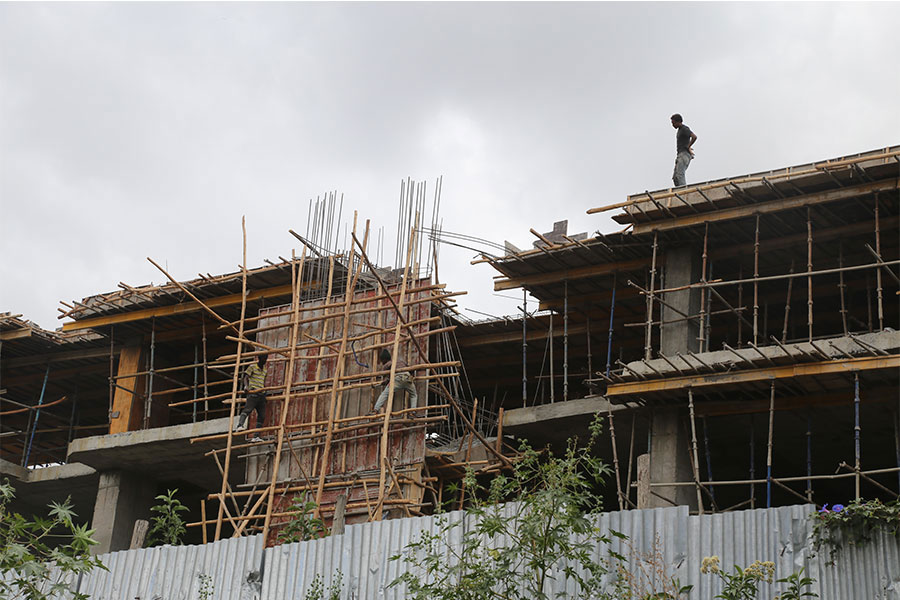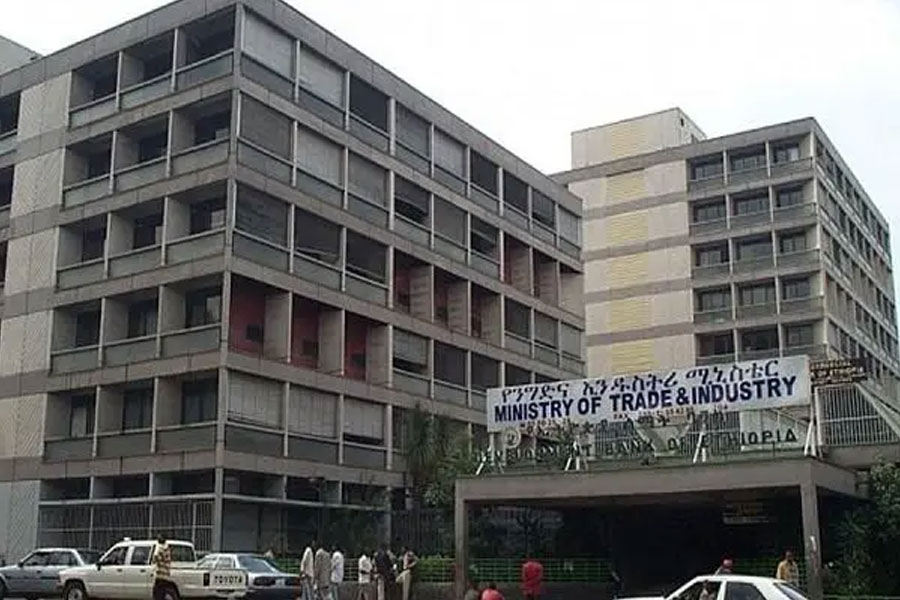
Fineline | Jul 27,2019
Oct 3 , 2020.
Mere days after the first case of the Novel Coronavirus (COVID-19) was reported in Ethiopia, schools across the country were ordered to shut down to contain its potential spread. With that, 26 million students across the country were left without education services. Where poor infrastructure and few resources predominate, efforts to alleviate the disruption through a modicum of virtual learning have been substandard.
It is not just in Ethiopia. Close to 1.6 billion students in almost every country in the world, accounting for 94pc of the school-going population, were affected by COVID-19. Worse still, this disruption is expected to affect lower-income countries and households that depend on their children’s education, on governments and donor support. They no doubt have had a hard time supplementing their children’s learning through alternative sources of education.
The unique challenge COVID-19 presents thus goes to the heart of the debate on Ethiopia’s education policy.
There are parents utterly outraged at the prospect that schools will open soon, which they believe will lead to the exasperation of the spread of the virus. It is a fear not understated. But those that acknowledge the risk COVID-19 poses want to see the continuing closure of schools as a drawback that will worsen disparities in skills and access to opportunities between income groups. This concern is understandable. But what both sides in the argument fail to consider is that the dilemma arises out of the lack of considered formulation in the government's education policy. It finds itself in a quagmire where institutions lack the innovative capacity and flexibility to deal with such a challenge.
Perhaps, given the truly unprecedented nature of the pandemic and how it has left even some of the most advanced economies in the world in awkward positions, Ethiopia’s education policy, infrastructure and institutions could be excused for their inadequate response. What COVID-19 has laid bare is how vulnerable the markets and means of delivering public goods truly are. It has brought forth the urgency to rethink the manner with which one of Ethiopia’s most rigid and traditional sectors should be administrated and managed.
But an inability to rise to the challenges of an interconnected, digitised and socially active modern world would not be forgivable.
From the Imperial era’s "controlled expansion" to subsequent regimes’ education policies designed to achieve inclusivity, improving access has been of overarching importance. No wonder that this is of utmost importance in a country where half of the population is unable to read and write in the early 21st century. It is such a policy that allowed the country to grow its student population of all ages from 330,000 in 1965 – including Eritrea, then part of Ethiopia - to 26 million today.
Was such an expansion of access to education to the detriment of its quality?
Sadly, such has been the case. A policy was undertaken by successive governments with vigour even when it was clear that institutions lacked the resources to ensure market demands for skilled labour are met. Their rationale, rightly, is that socioeconomic disparities would worsen unless expansion of education services is not an overriding priority. It is also hard to fault them for this.
Education institutions may not be up to par in the services they provide, which is the case for public schools across the country. But they still certify individuals with access to the labour market. The lack of certification – in the form of diplomas or degrees – means a lack of access to opportunities. It effectively closes the door on those that would have been unable to afford education services had it not been provided by the public sector.
In a world where economic disadvantages are the consequences of structural inequalities, this will have generational impacts. Those from lower-income households will have a higher likelihood of remaining in that group perpetually, through no fault of their own. The result will be combustible socioeconomic relations that will have adverse political consequences.
Under such circumstances, where the service at hand is considered at least a quasi-public good, it is considered unwise to leave access to education to the market with the knowledge that those with limited resources would be disproportionately disadvantaged. The education policy in Ethiopia is set up in consideration of this situation, and where primary and secondary education is concerned, it is justifiable. As is the case with any goods or services that are considered a right, the state has the responsibility to provide a basic form of it even when there are issues of quality.
But it is also incumbent upon policymakers to recognise the efficiency of markets in allocating resources and ensuring the highest possible productivity. Labour is one such resource, and education institutions play an allocating role by producing human capital. The less likely that they are unable to imbue students with the necessary skills and fail to meet the demand of a competitive economy, the harder it will be to achieve development goals.
Used primarily as a means for attaining certain social goals, with enough attention to the needs of economic efficiency, what remains are institutions that primarily serve to print certificates to meet certain political targets. This is a matter that needs to be rectified by leaving space for some amount of competitiveness in the system. Such a change could be made through a part of the education system that is not considered basic and would not have as destabilising a socio-political impact if it is allowed to be oriented toward responding to market forces.
Ethiopia’s higher education institutions have had a less than impressive record of meeting the needs of the labour market. Local universities are to be found nowhere in the top ranking schools in Africa. Research funding and outputs are similarly very low, ranking below Rwanda and Uganda, according to the World Education News & Reviews. This is hardly news to anyone.
The lack of quality in education has been discussed and debated endlessly. Unfortunately, most of the recommendations are generic, such as pleading for stricter regulation.
Policymakers, however, need to grab the bull by the horns and bring about reform where it matters most - the highly centralised nature of higher education and the lack of incentives for public universities to innovate.
Decentralising by allowing higher institutions to develop their own admissions standards, quotas and curricula should be high on the agenda. This would force public universities to vie for students that can pay as well as those that could enhance the profile of the institution through post-graduation achievements. This would inevitably abolish the 70-30 quota established to divert most high school graduates into natural science fields. The effect of this would be to allow the universities to train in skills most amenable to the demands of the labour market.
But this would still not go far enough. Either for people or institutions, nothing creates incentives to improve like rewards. Public universities are run by the federal government that allocates budgets to them annually. Making this contingent on certain measures of quality, such as research productivity, publications in reputable journals and even the ability to attract paying students, would force the institutions to work to justify their existence.
This may mean that some universities will fail. Allowing them to fail will be a tough call but a likelihood if competition, and thus quality service, is needed. It will be a means of balancing social justice with market efficiency, the latter of which Ethiopia's education policy has rarely sought.
PUBLISHED ON
Oct 03,2020 [ VOL
21 , NO
1066]

Fineline | Jul 27,2019

Radar | May 27,2023

Editorial | Aug 14,2021

Fortune News | Apr 28,2025

Life Matters | Jun 21,2025

Fortune News | Oct 02,2021

Fortune News | Jan 19,2024

Radar | Jul 06,2025

Fortune News | Jan 02,2021

Agenda | Jun 29,2025

My Opinion | 131819 Views | Aug 14,2021

My Opinion | 128203 Views | Aug 21,2021

My Opinion | 126147 Views | Sep 10,2021

My Opinion | 123767 Views | Aug 07,2021

Dec 22 , 2024 . By TIZITA SHEWAFERAW
Charged with transforming colossal state-owned enterprises into modern and competitiv...

Aug 18 , 2024 . By AKSAH ITALO
Although predictable Yonas Zerihun's job in the ride-hailing service is not immune to...

Jul 28 , 2024 . By TIZITA SHEWAFERAW
Unhabitual, perhaps too many, Samuel Gebreyohannes, 38, used to occasionally enjoy a couple of beers at breakfast. However, he recently swit...

Jul 13 , 2024 . By AKSAH ITALO
Investors who rely on tractors, trucks, and field vehicles for commuting, transporting commodities, and f...

Jul 6 , 2025 . By BEZAWIT HULUAGER
The federal legislature gave Prime Minister Abiy Ahmed (PhD) what he wanted: a 1.9 tr...

Jul 6 , 2025 . By YITBAREK GETACHEW
In a city rising skyward at breakneck speed, a reckoning has arrived. Authorities in...

Jul 6 , 2025 . By NAHOM AYELE
A landmark directive from the Ministry of Finance signals a paradigm shift in the cou...

Jul 6 , 2025 . By NAHOM AYELE
Awash Bank has announced plans to establish a dedicated investment banking subsidiary...